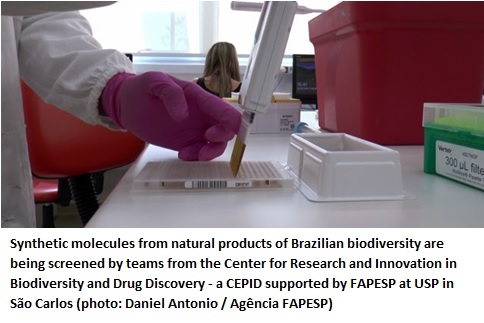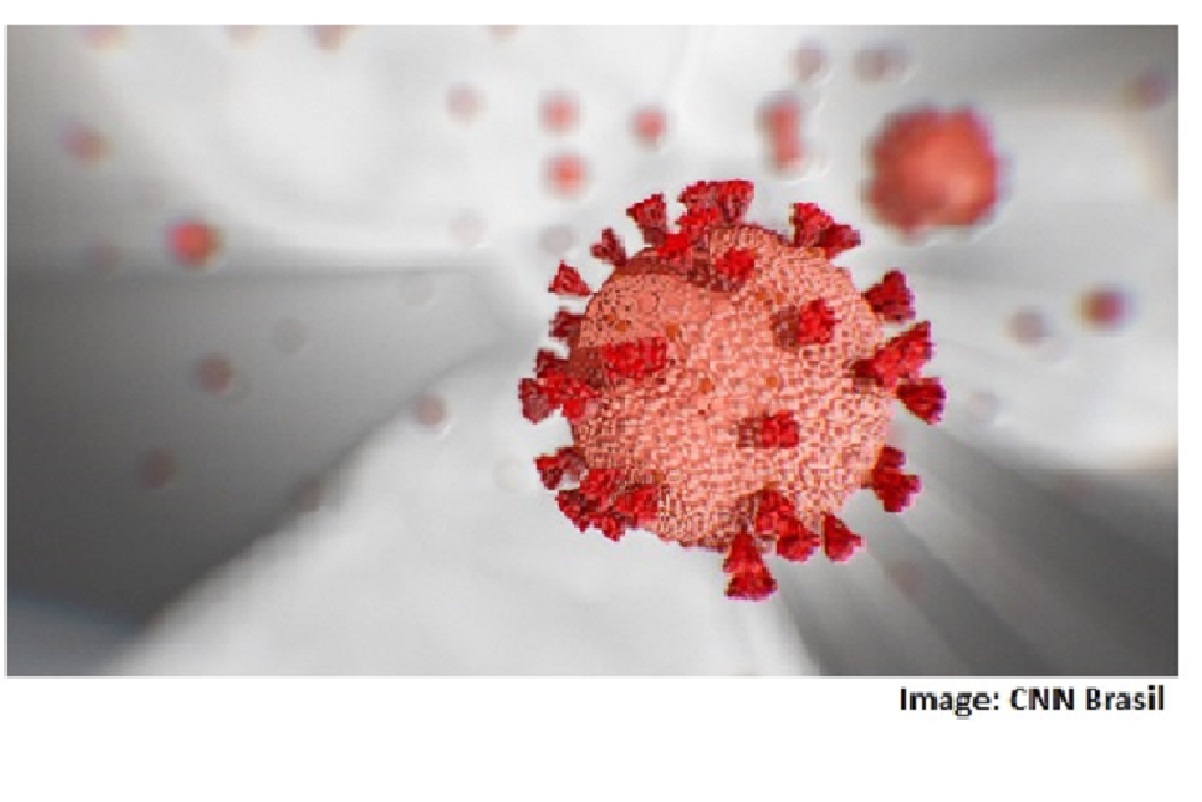By Maria Fernanda Ziegler | Agência FAPESP – Researchers linked to the Center for Research and Innovation in Biodiversity and Drug Discovery (CIBFar) are looking for potential antivirals for the treatment of COVID-19 among synthetic compounds and natural products of Brazilian biodiversity, in addition to conducting studies aimed at repositioning existing drugs.

The idea is to search, in different repositories and databases, for chemical compounds capable of blocking the action of the so-called “non-structural proteins” of the new coronavirus (SARS-CoV-2), essential for the replication of the microorganism within the human cell.
“When the virus enters the cell, it starts making copies of its own genetic material [in the case of SARS-CoV-2, an RNA] so that it can multiply and advance through the infected organism. A part of the viral genome produces proteins on the surface of the virus and also 16 other non-structural proteins, which only appear after the cell is invaded. These molecules are responsible for replicating the viral genome. Our goal is to find a compound that ‘sticks’ to one of these non-structural proteins and thus makes replication of SARS-CoV-2 unfeasible”, says Prof. Glaucius Oliva, coordinator of CIBFar, a Research, Innovation and Diffusion Center (CEPID) supported by FAPESP at the São Carlos Institute of Physics of the University of São Paulo (IFSC-USP).
The multidisciplinary project, supported by FAPESP, also brings together researchers from the Institute of Biomedical Sciences (ICB-USP), from the São Carlos Institute of Chemistry (IQSC-USP), from the School of Pharmaceutical Sciences of Ribeirão Preto (FCFRP-USP), from Paulista State University (Unesp) and the University of Campinas (Unicamp).
Two screening processes
The selection of compounds is being carried out in two different ways. One is virtual screening – through computational techniques, such as artificial intelligence, and experimental, such as crystallography -, which aims to analyze the three-dimensional structure of molecules. The goal is to verify among the analyzed compounds which have a chemical structure capable of fitting the target (the non-structural proteins of the new coronavirus) and, therefore, potential to prevent viral replication
The second way of selection involves experimental tests to evaluate the molecules ability to inhibit the enzymes involved in the replication process. This is only possible thanks to the recombinant production of viral enzymes in CIBFar, among them the main protease of SARS-CoV-2 known as Mpro (enzyme that breaks down RNA coding proteins).
“We have already managed, for example, to produce the protease Mpro at CIBFar and we are carrying out inhibition tests with natural and synthetic compounds. The virus needs this enzyme to cut the long chain of proteins encoded by its genome. Then, each part of this chain will fold up and compose the replication complex”, explains the researcher.
Molecules with the ability to inhibit enzymes will be validated in invasion and infection assays of human cells by the new coronavirus obtained from viral isolates from Brazilian patients, performed at ICB-USP. “Whatever works, whether in the virtual assay or in the enzymatic assay, will need to be confirmed in in vitro tests, only to then move on to animal tests and, finally, clinical trials on patients. Invariably, developing new drugs is a time-consuming process until its effectiveness and safety are certain ”, he says.
Biodiversity wealth
For Prof. Oliva, a differential of the project lies in the screening of natural products from Brazilian biodiversity, mainly due to the existence of the database of the Nucleus of Bioassays, Biosynthesis and Ecophysiology of Natural Products (NuBBE-DB), which gathers information on the structure of more than 54 thousand natural molecules. The repository was developed with support from CIBFar.
“Of course, a molecule that has never been used as a drug before can take five to 10 years to prove its effectiveness and safety. However, we have something different in Brazil: access to natural products and the use of extracts known to traditional culture”, he says
As the researcher explains, plants and microorganisms are important sources of medicinal compounds. Because they do not have an immune system or much mobility, they use chemical compounds as the main weapon against predators or invaders. “This means that, over millions or billions of years [in the case of bacteria and fungi], by natural selection, it was possible to develop synthetic ways to produce protective molecules. As we have a great biodiversity in Brazil and an important previous work of identification, characterization and cataloging of these compounds, it may be that compounds come from natural products capable of inhibiting the action of the new coronavirus ”, he says.
Diversified fronts
The project also aims to guide the repositioning of drugs already approved for human use. The researchers will evaluate 1,500 compounds already approved by the FDA (Food and Drug Administration, an agency that regulates drugs in the United States) and, depending on the capacity of the cellular assays at ICB-USP, they will be able to access thousands of compounds from the organization’s libraries international Medicines for Malaria Ventures (MMV) and several other collections of projects that are under development in the State of São Paulo.
According to Prof. Oliva, the process of developing new drugs tends to be shortened when molecules of existing drugs – which have already passed all the necessary safety tests – are analyzed for other indications. “These will be the first molecules to be tested, even though the examples of successful drug repositioning are very rare,” he says.
Link to original article: http://agencia.fapesp.br/pesquisadores-buscam-moleculas-antivirais-para-tratamento-da-covid-19/33270/





